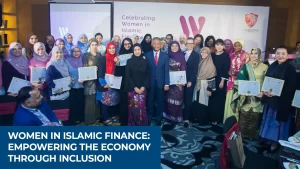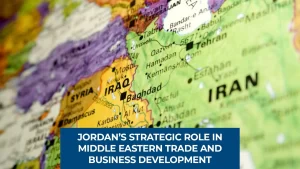Takaful is an Arabic word that means “Kafala.” Hence, Kafala means to guarantee each other. It conveys a cooperative system of refund or repayment in case of any loss that is employed for the benefit of all the individuals.
Unlike traditional insurance, Takaful is grounded in the Shariah/Islamic principles, which focus on shared responsibilities and cooperation. On the other hand, Takaful has become the substitute for providing insurance that is acceptable to Muslims accordingly.
Jordan is a country with a Muslim population, and they are adopting Takaful progressively and catering to the insurance needs of their residents. In this article, Dr. Raed El Omari, a renowned Jordanian business expert, critically reviews the various Takaful pinnacles practiced in Jordan, analyzing their layout and market implementation.
JORDAN’S TAKAFUL MODEL
Mudarabah Model
The model is based on a profit-sharing deal between the Takaful operative individuals and the participants. In contrast, the operator acts as a leader. On the other hand, the participants provide the capital. Furthermore, the profit is shared according to the pre-decided ratio. Hence, the losses are paid solely by the participants. In Jordan, where Muslims are in the majority, the model generally is straightforward and aligns with Islamic principles.
Wakala Model
The other model practiced in Jordan is the Wakala Model, in which the operator acts as the agent (wakeel) on behalf of the parties. Hence, the operator (wakeel) charges a specific fee for handling the funds and makes sure of transparency as this approach will minimize conflicts. The Jordanian individual practices the model due to its straightforward and transparent structure.
Waqf-Wakala Model
The model combines the concepts of Waqf (endowment) and Wakala. The contributions by the parties are considered donations to a Waqf fund, in which the Takaful operators manage fixed fees. Hence, this hybrid model ensures the sustainability of Takaful Funds sticks to Islamic Principles. Therefore, the model is admired for its creative strategy to fund administration and issuance of surplus.
PRACTICES AND PERFORMANCE
Regulatory Framework
The Insurance Commission frames the framework for Takaful in Jordan that makes sure compliance with national Law and Islamic principles. Hence, the commission has strict guidelines that need to be followed as it strengthens the credibility of Takaful operators. On the other hand, there are some challenges related to Shariah. However, there are challenges related to the standardization of Shariah observation and the understanding of Islamic laws, which periodically lead to procedural inconsistencies.
Market Penetration
The Market penetration is relatively low compared to conventional insurance despite the theoretical appeal of Takaful. Some factors include limited public awareness and sensed complexity that hinders overall adoption. But, the evolving interest in Islamic finance and boosted actions by Takaful operators to familiarize the public are slowly changing this geography.
CHALLENGES AND RECOMMENDATIONS
Standardization and Islamic Compliance
The major challenge in the Takaful sector of Jordan is the lack of standardized Shariah compliance. There are various Takaful operations following Islamic principles that often vary the interpretations of Islamic principles and lead to differences. The Jordanian Business experts suggest establishing a board that oversees and formalizes principles that could addresses this issue.
Awareness and Education
Furthermore, it is essential to educate individuals regarding Takaful for market expansion. The operators must invest in educational campaigns and educate people about Takaful’s benefits and principles.
In conclusion, Jordan is still developing when it comes to Takaful. The models discussed above provide a robust base, and addressing challenges and recommendations is essential for success. On the other hand, Takaful is an attractive alternative to traditional insurance in Jordan that aligns with Shariah’s emphasis on customer-centric approaches.






